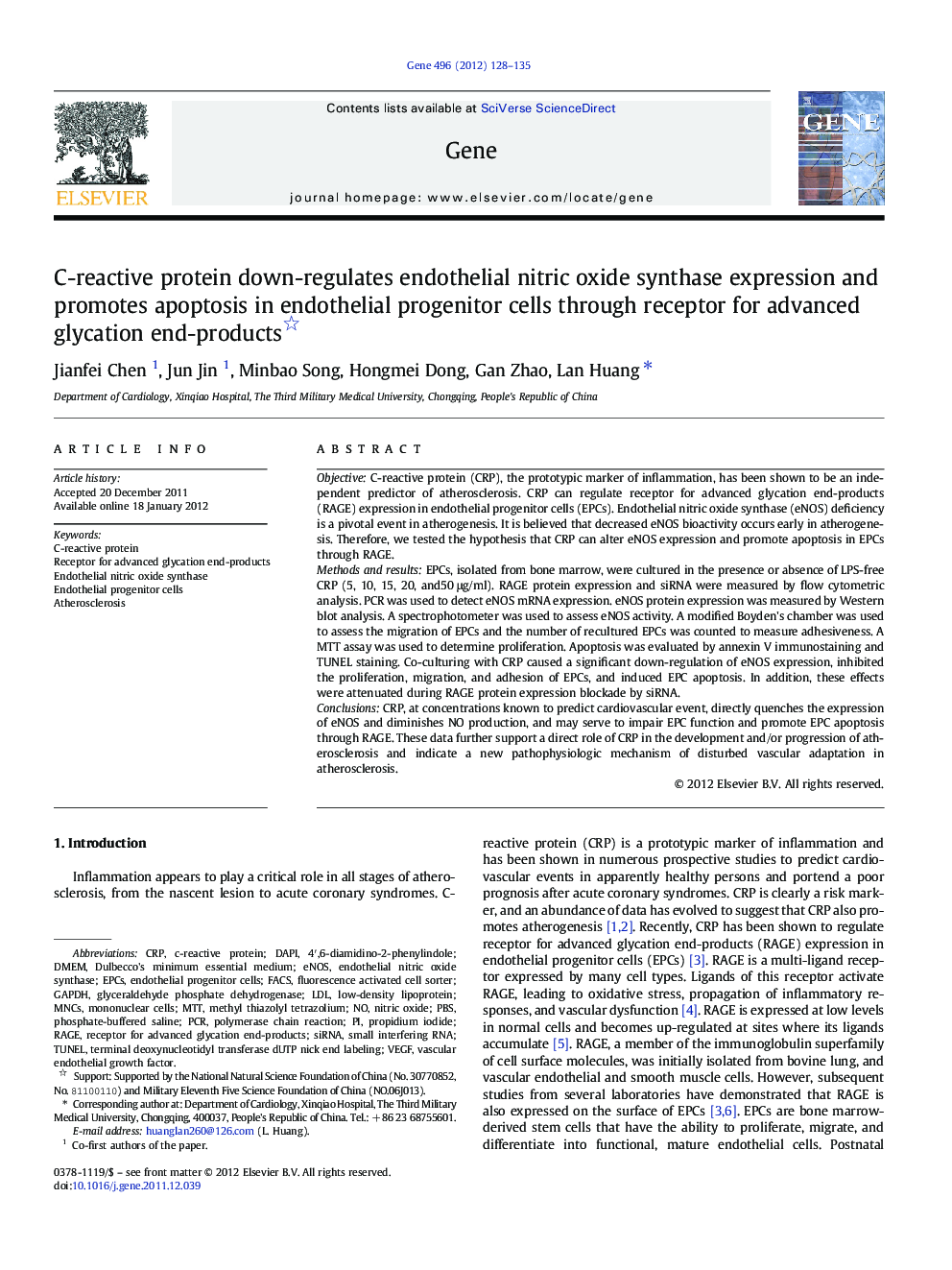| Article ID | Journal | Published Year | Pages | File Type |
|---|---|---|---|---|
| 2818086 | Gene | 2012 | 8 Pages |
ObjectiveC-reactive protein (CRP), the prototypic marker of inflammation, has been shown to be an independent predictor of atherosclerosis. CRP can regulate receptor for advanced glycation end-products (RAGE) expression in endothelial progenitor cells (EPCs). Endothelial nitric oxide synthase (eNOS) deficiency is a pivotal event in atherogenesis. It is believed that decreased eNOS bioactivity occurs early in atherogenesis. Therefore, we tested the hypothesis that CRP can alter eNOS expression and promote apoptosis in EPCs through RAGE.Methods and resultsEPCs, isolated from bone marrow, were cultured in the presence or absence of LPS-free CRP (5, 10, 15, 20, and50 μg/ml). RAGE protein expression and siRNA were measured by flow cytometric analysis. PCR was used to detect eNOS mRNA expression. eNOS protein expression was measured by Western blot analysis. A spectrophotometer was used to assess eNOS activity. A modified Boyden's chamber was used to assess the migration of EPCs and the number of recultured EPCs was counted to measure adhesiveness. A MTT assay was used to determine proliferation. Apoptosis was evaluated by annexin V immunostaining and TUNEL staining. Co-culturing with CRP caused a significant down-regulation of eNOS expression, inhibited the proliferation, migration, and adhesion of EPCs, and induced EPC apoptosis. In addition, these effects were attenuated during RAGE protein expression blockade by siRNA.ConclusionsCRP, at concentrations known to predict cardiovascular event, directly quenches the expression of eNOS and diminishes NO production, and may serve to impair EPC function and promote EPC apoptosis through RAGE. These data further support a direct role of CRP in the development and/or progression of atherosclerosis and indicate a new pathophysiologic mechanism of disturbed vascular adaptation in atherosclerosis.
► CRP can down-regulate eNOS expression in EPCs. ► CRP can promotes apoptosis in EPCs. ► CRP's effects are mediate by RAGE.
